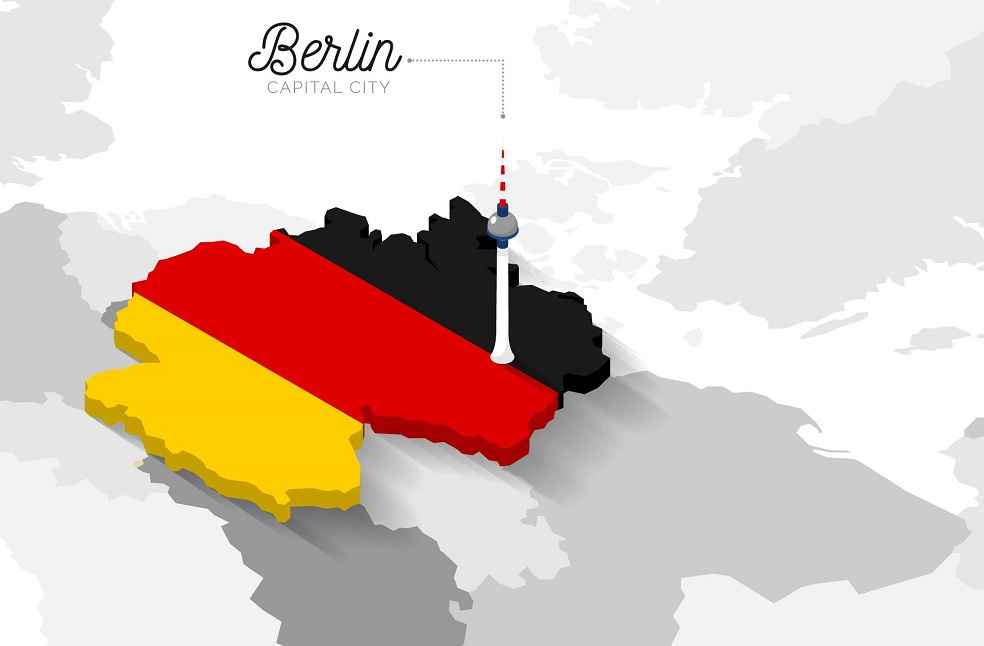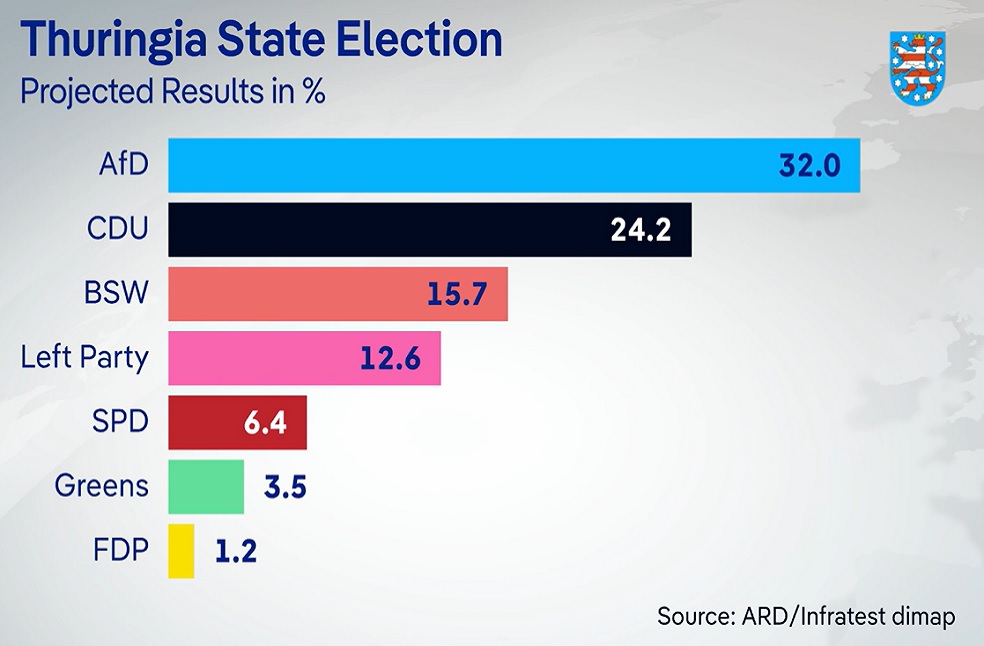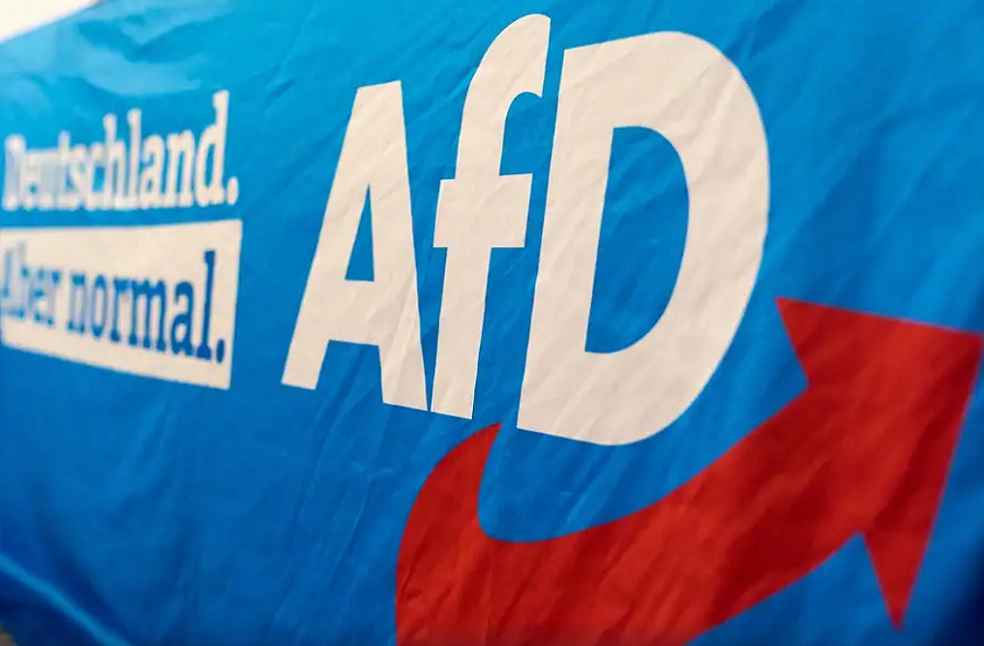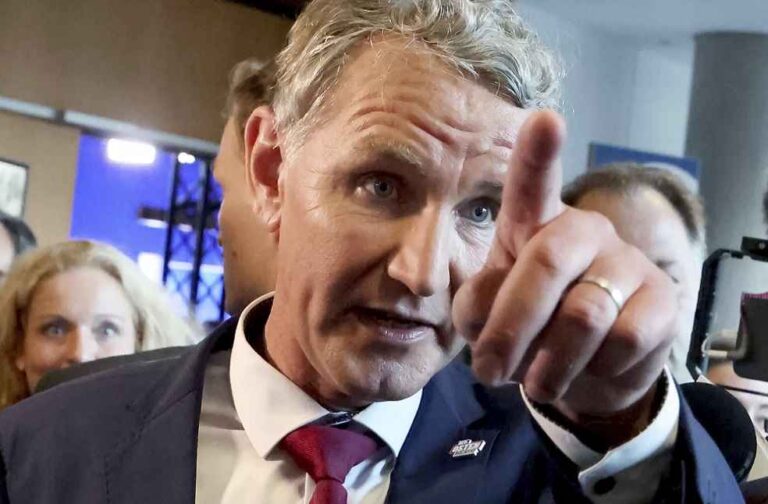Berlin (Capital of Germany): The German government is grappling with a severe crisis following catastrophic defeats in the recent state elections in Saxony and Thuringia. The results have delivered a harsh rebuke to the ruling coalition, comprising the Social Democrats (SPD), Greens, and Free Democrats (FDP), as the far-right Alternative for Germany (AfD) made unprecedented gains, raising serious questions about the federal government’s future.
AfD’s Unprecedented Surge
For the first time, the AfD secured more than a third of the vote in state parliament elections, outstripping the combined total of the coalition parties. This outcome starkly illustrates the deepening dissatisfaction among the electorate with the federal government’s performance. The Greens in Thuringia and the FDP in both states failed to surpass the 5% threshold required to enter the state parliaments, underscoring the extent of the coalition’s collapse.
Implications for Federal Leadership
The state elections have national significance, reflecting widespread disillusionment with Chancellor Olaf Scholz’s administration. Long-standing dissatisfaction, highlighted by polling data from infratest dimap, shows that four out of five Germans are unhappy with the government’s direction. The coalition’s perceived internal discord and ineffective governance have further alienated voters, despite recent efforts to tighten migration and security policies.

AfD co-leader Alice Weidel declared the results a “historic success” and called for the federal government to consider stepping down. Weidel’s assertion that the election outcome is a “requiem for this coalition” intensifies the pressure on Berlin to reassess its position and policies.
The Crucial Brandenburg Elections
Attention now turns to the upcoming elections in Brandenburg, where the AfD is leading in the polls, closely followed by the SPD. The outcome will be a critical test for the Social Democrats, who have governed Brandenburg since reunification in 1990. SPD co-leader Lars Klingbeil has called for unity and a renewed effort to regain voter trust, stressing the importance of this election for the party’s future.
Despite the severe setbacks in Saxony and Thuringia, the SPD leadership continues to back Chancellor Scholz. However, should Brandenburg’s long-serving premier Dietmar Woidke fail to secure re-election, internal party discussions could shift towards considering Defence Minister Boris Pistorius as a potential candidate for the chancellorship in the 2025 federal elections.
Growing Instability Within the Coalition

The election results have exacerbated tensions within the coalition, with calls for greater clarity and a stronger stance on key issues becoming more pronounced. The upcoming budget deliberations and the implementation of stricter migration policies will be pivotal in determining the coalition’s ability to govern effectively.
Failure to stabilize could lead to early nationwide elections, which current polls suggest would result in significant losses for the coalition parties. Such a scenario would likely benefit the AfD and the conservative Union (CDU/CSU), whose leaders have already begun to increase pressure on the federal government. CDU national general secretary Carsten Linnemann has questioned whether the coalition can still effectively govern, given its poor performance in these key state elections.
As Germany navigates this period of political uncertainty, the coming months will be crucial in determining whether the current government can recover from this crisis or if the rise of the far-right will reshape the country’s political landscape.
The AfD

The Alternative for Germany (AfD) is a far-right and right-wing populist political party in Germany. The AfD is Eurosceptic and strongly opposes immigration to Germany, particularly the immigration of Muslims. The German judiciary has classified the party as a ‘suspected extremist’ organisation, though the party itself does not reject democratic principles.
HEALTH WORLD | UNICEF issues emergency tender to secure Mpox vaccines



